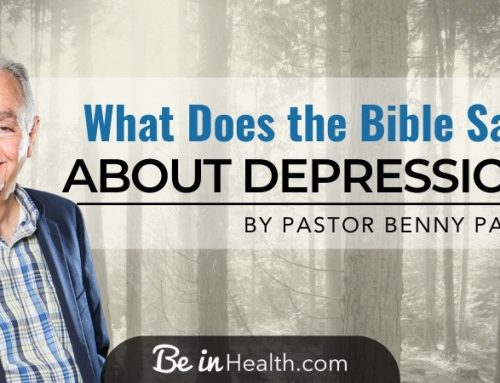Some ongoing research studies suggest that living in areas with less sunlight direct exposure, or living farther from the equator, might increase risk. These studies are not one hundred percent confirmed. Lastly, hereditary links are being studied also. Scientists are likewise studying individuals with Circadian Rhythm Conditions. This includes people who may work "swing shifts" or "3rd shift." There could be a linkage to the serotonin levels in the brain in these people which may make them more prone to SAD with no other known genetic risk factors.
Darkness overall might increase the production of melatonin causing increased tiredness and circadian rhythm, or "sleep-wake" cycle, disruptions. The signs of UNFORTUNATE vary on the type: winter anxiety (a. k.a., fall-winter beginning) or spring-summer onset. Symptoms are also evolved around the seasonal amount of time as talked about above. Here's how the signs break down individually.
Typically, in the medical care office you will be asked to complete a survey. This is called a PHQ 9 form and it helps identify patients with depression, and can assist to identify SAD. There are other screening kinds used by your medical care provider also, but this is one example. how does anxiety affect your mental health.
You must alert your health care supplier if experiencing these signs to figure out whether treatment and follow-up is essential. Testing may require to be conducted to ensure there are no other medical problems creating the start of these signs. Your physician will desire to eliminate thyroid disease, anemia, vitamin D shortage, other vitamin deficiencies, and so on - how does the skeletal system affect mental wellbeing.
Furthermore, to correctly identify SAD, evaluating and optimizing medication is necessary. Some medications might have adverse effects that may add to the feelings you are experiencing - how does social media affect mental health. Comorbidities should be discussed during the office visit in order to ensure there is no concurrent concern with alcohol abuse, attention deficit condition, or any other mental health condition that is not SAD.
The Best Strategy To Use For How Does Social Media Negatively Affect Your Mental Health
The most typical very first treatment choice is light therapy. This type of phototherapy exposes the client to a light discharging resource, while sitting a certain range, from a specialized light box. Your health care company, in discussion with you, will figure out how frequently to utilize this in your home. This approach might start to help symptoms in days to weeks.
e., fluoxetine, paroxetine, etc.) or Wellbutrin, might be helpful. They can assist those with underlying psychological health conditions. The treatment might cover weeks if there is no other underlying condition kept in mind, or it might be longer depending on signs and intensity. Direct exposure to the outdoors, regardless of sunshine, is likewise recommended.
Additionally, the advantage of exercise aids with total You can find out more well-being, tension, stress and anxiety, and tiredness, and it likewise increases endorphins, your body's internal "feel-good" hormones. A great assistance system is constantly valuable, too. You might need additional support through talk therapy with a psychologist to help manage the signs as well. Socializing skills in general have actually been supposedly handy, instead of staying alone in the house.
Current data recommends that workplace gos to every four-to-eight weeks to reassess symptoms and severity has proven useful. Go over treatment and long-term care with your company as well. Not everybody requires long-term, or long-lasting, treatment with medications, if you are recommended one, but this is a valid discussion to be followed in your treatment and management plan.
If they require assistance finding a provider near them, they can pick from a broad variety of caring physicians at UPMCPinnacle. com.

How Can Lack Of Sleep Affect Your Mental Health for Beginners
We often hear that certain seasons are associated with higher wellbeing and others are related to a decreased sense of health and wellbeing. Besides humans' private seasonal preferences, there are also legitimate psychological health challenges that emerge as a result of seasons changing. Seasonal Depression (SAD) is real, and it is a type of depression that relates to the change in seasons.
Seasonal psychological health obstacles, such as SAD, are real and treatable. This post, however, will be taking a various angle in order to outline psychological health benefits that can be found within each season. These advantages are not indicated to be seen as remedies to the legitimate mental health obstacles that individuals face as a result of changing seasons.
This short article can be viewed as a spotlight on self-care practices or chances, as they connect to each season. Spring can be known as a time of renewal, renewal, development, and blooming. Spring can naturally make us feel more re-energized. Ideas for self-care practices in the spring: Go for a conscious walk outdoors in nature: observe the growth and blooming.
Eliminate products that are old, expired, or no longer of usage to you. Bring in suitable replacements of new items anywhere you see fit. Restructuring and cleaning up in general can be an extremely restorative process. Produce a spring music playlist with a current list of your preferred tunes and tunes.
Go on a picnic with buddies or relative. Summer is the time for experience, sunlight, outside exploration, reflection, and expedition. Immerse yourself in nature and make the most of the weather by participating in active exercises strolls, hikes, or runs outdoors. Go to the beach or the lake with good friends or family.
What Does How Does Menopause Affect Your Mental Health Do?
Plan a trip or a staycation. Start or continue a journal. Check-in regularly and review how you are feeling. Check out events going on in your neighborhood. Summer season might be a time where your neighborhood hosts outdoor movie nights, farmers markets, or other kinds of community gatherings. Although autumn may be a demanding time, with busier schedules, chillier weather, and the holidays around the corner, there are lots of opportunities to incorporate required self-care into your routines.

Have a warm drink, journal, and assess how you are feeling. Think about keeping an appreciation journal. Set limits on your own: prioritize yourself, and do not overcommit to activities as much as possible. Declutter your surroundings, especially if you find yourself investing more time inside. Engage in imaginative ways to move your body and remain active: start an indoor workout or yoga routine.
Cozy up under a blanket and check out a book. Go outdoors and immerse yourself in the winter air: bear in mind how the weather makes you feel. Ensure that you are getting enough sleep, as winter season can end up being overwhelming and busy with activities. Instead of "hibernating" during the winter season, keep up your workout routine from the fall, or try something brand-new completely.
Link with your peers and hold corrective storytelling discussions around a fire outdoors or inside your home. Accept the comfort of winter. Throughout all the seasons, the most important thing to do is to advise yourself typically of the value of checking-in with your wellness and making time on your own. Utilize this breakdown as a recommendation to assist you prepare for self-care and mental health awareness in every season.